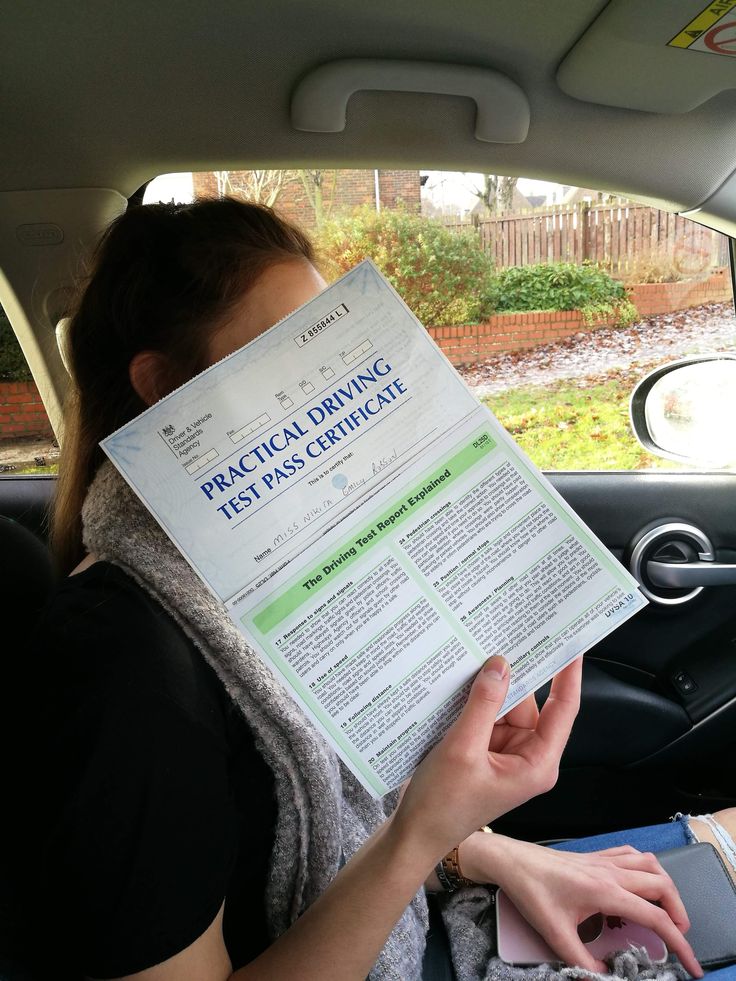Mastering Compliance: Your Comprehensive Guide to Licence Checks
In today’s complex regulatory landscape, the term “licence check” might sound simple, but its implications are vast and far-reaching. Whether you’re an individual verifying a contractor, a business ensuring employee compliance, or an organization managing its software assets, understanding and executing effective licence checks is paramount. It’s not just about ticking a box; it’s about safeguarding your reputation, ensuring legal compliance, and protecting yourself and others from potential risks.
This comprehensive guide will walk you through everything you need to know about licence checks. You’ll discover why they are crucial, the different forms they take, how to conduct them effectively, and key considerations to keep in mind.
Why Licence Checks Matter: The Core Reasons You Can’t Ignore
At its heart, a licence check is a verification process – confirming that an individual, a business, or even a piece of software possesses the necessary authorization to perform a specific action or operate in a given capacity. Ignoring this crucial step can lead to a cascade of negative consequences.
Here’s why robust licence checks are non-negotiable for you:
- Legal Compliance & Risk Mitigation: This is perhaps the most significant reason. Operating without the correct licences can result in hefty fines, legal penalties, cessation of operations, and even criminal charges. A thorough check ensures you meet all statutory requirements, significantly reducing your legal exposure.
- Safety & Security: For roles involving driving, operating machinery, or professional services (like healthcare or construction), a valid licence confirms the individual has met the minimum competency and safety standards. This directly protects you, your employees, clients, and the public from harm.
- Reputation Management: Associating with unlicensed individuals or entities, or being found in violation of licensing laws yourself, can severely damage your brand and public trust. Proactive checks demonstrate your commitment to ethical operation and professionalism.
- Financial Integrity: Beyond fines, non-compliance can lead to costly rework, project delays, insurance complications, and even loss of business. In software, using unlicensed products can result in massive true-up costs and audit penalties.
- Quality Assurance: Professional licences often signify a certain level of training, expertise, and adherence to industry standards. Verifying these licences helps ensure you’re engaging with qualified and competent individuals or organizations.
Types of Licence Checks: A Diverse Landscape
The world of licence checks is incredibly varied, encompassing everything from personal certifications to complex corporate permits. Understanding the different categories will help you identify what applies to your specific situation.
Let’s explore some of the most common types:
- Driver’s Licence Checks: Essential for anyone operating a vehicle for business purposes, whether it’s a delivery driver, a sales representative, or someone using a company car. These checks verify validity, class, endorsements, and often include a review of driving records (e.g., MVRs in the US, DVLA checks in the UK).
- Software Licence Checks: Critical for businesses to ensure they are compliant with End User Licence Agreements (EULAs). This prevents software piracy, legal action from vendors, and costly true-up audits.
- Professional Licences: Required for numerous professions to practice legally. This includes doctors, nurses, lawyers, accountants, architects, engineers, real estate agents, electricians, plumbers, and many more. These checks confirm an individual’s qualifications and good standing with their respective regulatory bodies.
- Business Licences & Permits: For businesses, these encompass a wide array of authorizations needed to operate legally—from general business licences to specific permits for health, safety, environmental, or industry-specific regulations.
- Data Usage Licences: With the proliferation of APIs and third-party data, ensuring you have the legal right to access and use specific datasets is increasingly important to avoid intellectual property infringements and data privacy breaches.
Here’s a table summarizing common licence types and their primary implications:
| Licence Type | Primary Purpose | Key Implication of Non-Compliance |
|---|---|---|
| Driver’s Licence | Authorizes vehicle operation; verifies driving history. | Fines, legal liability, insurance issues, safety risks. |
| Software Licence | Grants right to use software; defines usage terms. | Heavy fines, legal action from vendors, audit penalties. |
| Professional Licence | Certifies expertise & legal right to practice. | Legal barriers to practice, malpractice risks, loss of trust. |
| Business Licences/Permits | Authorizes specific business operations. | Fines, business closure, legal injunctions. |
| Data Usage Licence | Grants permission to access/use specific datasets. | IP infringement, data privacy breaches, legal disputes. |
The Process of Conducting a Licence Check: A Step-by-Step Guide
Executing an effective licence check involves more than a quick glance at a document. It’s a systematic process that ensures accuracy, compliance, and actionable outcomes.
Here’s a general outline of the steps you should follow:
- Identify the Requirement: Clearly define why a licence check is needed, which specific licence(s) are required, and for whom or what.
- Obtain Consent (Crucial!): If you are checking an individual’s personal licence (e.g., driver’s licence, professional certification), you must obtain their explicit, written consent. This is a fundamental principle of data privacy regulations like GDPR.
- Choose Your Method:
- Manual Verification: Directly contacting the issuing authority or checking public registers. This can be time-consuming but suitable for low-volume checks.
- Automated Services: Utilizing third-party background check providers or dedicated licence verification platforms. These services streamline the process, often providing faster and more comprehensive results.
- Internal Systems: For software licences, implementing IT asset management (ITAM) tools to track and manage software usage against purchased licences.
- Verify Against Authoritative Sources: Always cross-reference the presented licence information with official databases or issuing bodies. Never rely solely on a copy or a verbal confirmation.
- Document Everything: Keep meticulous records of:
- When the check was performed.
- Who performed it.
- The results of the check.
- Any actions taken as a result.
- The individual’s consent form.
- Act on Findings:
- Pass: If compliant, great! Document it.
- Fail/Issues: If there’s a discrepancy, an expired licence, or a disqualification, you must take appropriate action. This could range from requiring immediate renewal, reassigning duties, or, in severe cases, termination of employment or contract.
- Schedule Regular Reviews: Licences expire, regulations change, and individuals’ statuses can change. Implement a system for periodic re-verification to maintain continuous compliance.
Key Considerations for Effective Licence Checks
To optimize your licence checking process and avoid common pitfalls, keep these critical considerations in mind:
- Data Privacy and Security: When handling personal licence information, adherence to data protection laws (e.g., GDPR, CCPA) is paramount. Ensure data is collected, stored, and processed securely and only for legitimate purposes.
- Accuracy and Reliability: Always use primary, authoritative sources for verification. Be wary of unofficial databases or information that cannot be independently confirmed.
- Frequency of Checks: Determine an appropriate frequency based on risk. High-risk roles (e.g., commercial drivers) may require more frequent checks than others. Consider annual checks or checks upon renewal dates.
- Scalability: For larger organizations, manual checks quickly become impractical. Invest in scalable solutions, such as HR systems integrated with background check providers, or dedicated ITAM software.
- Cost-Benefit Analysis: While there’s a cost associated with thorough licence checks, weigh this against the potential financial, legal, and reputational costs of non-compliance. Often, the investment in checks is a fraction of the cost of a single violation.
Consider the following comparison for your implementation approach:
| Feature | Manual Licence Checks | Automated Licence Checks |
|---|---|---|
| Effort | High (research, calls, data entry) | Low (system integration, online queries) |
| Speed | Slow (dependent on external responses) | Fast (real-time or near real-time results) |
| Accuracy | High (if meticulously done) | High (direct database access) |
| Cost | Low (direct cost), High (indirect labor cost) | Higher (service fees), Lower (indirect labor cost) |
| Scalability | Poor | Excellent |
| Documentation | Requires manual record-keeping | Often automated within the system |
| Compliance | Requires active management of consent & privacy | Services often built with compliance features |
Frequently Asked Questions (FAQ)
Q1: What happens if an employee’s licence check fails or reveals an issue? A1: You must take immediate action. This could involve withdrawing a job offer, removing the employee from duties requiring that licence, requiring them to renew or rectify the issue, or, in severe cases, termination of employment. Your company policy should clearly outline these steps.
Q2: How often should I conduct licence checks for employees? A2: It depends on the role and the licence type. For high-risk roles (e.g., drivers), annual checks are often recommended. For professional licences, checks upon renewal are critical. For general business licences, annual review is a good practice.
Q3: Do I need consent to check someone’s licence? A3: Absolutely, yes. For any licence containing personal data, explicit written consent from the individual is legally required before you conduct a check. This is mandated by data protection laws.
Q4: What are the penalties for non-compliance with licensing requirements? A4: Penalties vary widely depending on the type of licence and the jurisdiction. They can include significant monetary fines, legal prosecution, suspension or revocation of business permits, injunctions to cease operations, and even imprisonment in some serious cases (e.g., operating certain professions without a licence).
Q5: Can I use an online service for licence checks? A5: Yes, and it’s highly recommended, especially for businesses. Many reputable background check providers and specialized licence verification services can streamline the process, offer greater accuracy, ensure compliance, and manage the necessary consent forms. Always choose a service that adheres to data privacy regulations and uses authoritative data sources.
Conclusion
Licence checks are far more than a bureaucratic formality; they are a fundamental pillar of responsible operation, safeguarding against legal exposure, financial loss, reputational damage, and safety hazards. By understanding the diverse types of licences, implementing a robust and systematic checking process, and adhering to crucial considerations like data privacy, you empower yourself and your organization to navigate the complexities of compliance with confidence. Take the proactive step today to review and strengthen your licence checking protocols – it’s an investment in your future.

